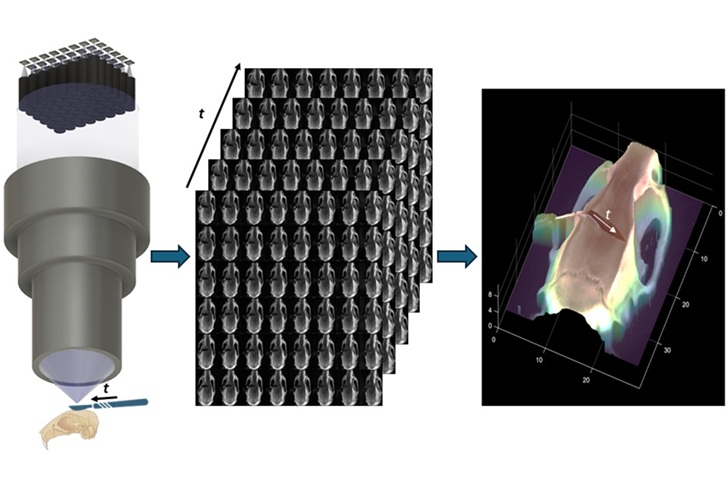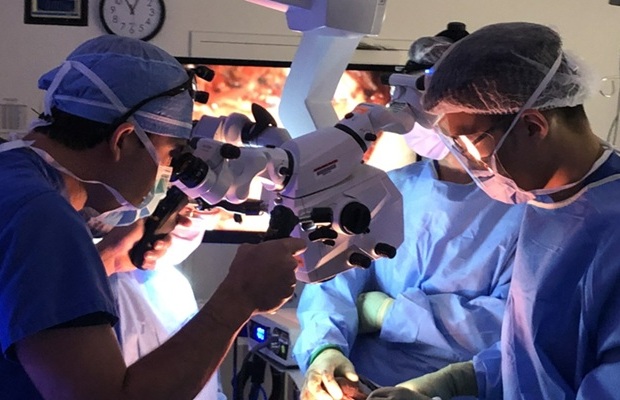AI-Enabled 3D Body Volume Scanner Predicts Metabolic Syndrome Risk
|
By HospiMedica International staff writers Posted on 21 Aug 2024 |
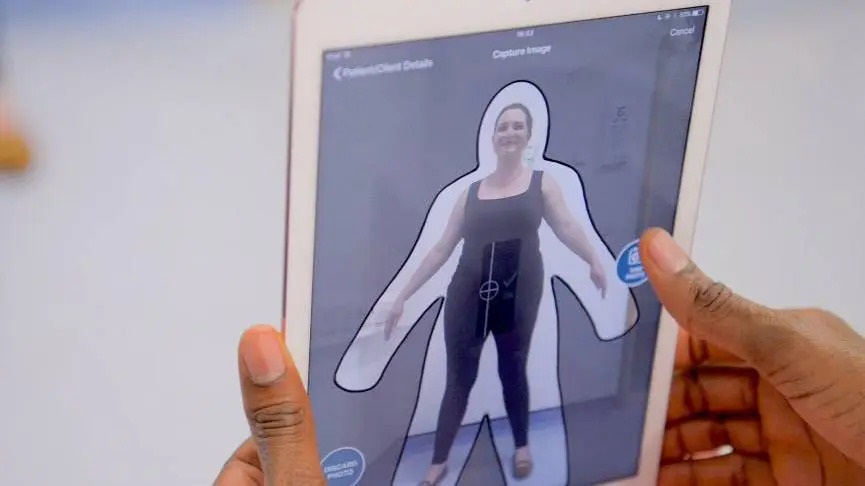
Metabolic syndrome is a major global health concern, affecting a quarter of the global population and leading to severe health issues like heart attacks, strokes, diabetes, cognitive diseases, and liver diseases. This syndrome creates significant challenges for patients, not only due to its severe health implications but also due to the difficulty in diagnosing and managing it effectively. People with metabolic syndrome often exhibit an apple-shaped body, characterized by significant abdominal weight. Currently, diagnosis is based on a combination of laboratory tests, blood pressure measurements, and body shape evaluations. However, the absence of universally accepted screening methods, due to variability in measurements, complicates the effective screening for this syndrome. Clinically, metabolic syndrome is confirmed when an individual exhibits at least three of the following conditions: abdominal obesity, elevated blood pressure, high triglyceride levels, reduced HDL cholesterol, and high fasting blood glucose levels. Given the limitations of current diagnostic methods like body mass index (BMI) and bioimpedance scales, which often provide inaccurate results, there is a pressing need for more reliable and consistent methods to assess the risk and severity of metabolic syndrome.
Researchers at Mayo Clinic (Rochester, MN, USA) are now integrating artificial intelligence (AI) with an advanced 3D body-volume scanner to help doctors predict metabolic syndrome risk and severity. The combination of tools offers a more accurate alternative to other measures of disease risk like BMI and waist-to-hip ratio, according to the study published in the European Heart Journal - Digital Health. The research team developed and validated this AI model using data from 1,280 volunteer subjects who underwent comprehensive health evaluations including 3D body-volume scans, clinical questionnaires, blood tests, and traditional body measurements. Additionally, to further refine the tool’s capabilities, 133 volunteers were assessed using front- and side-view images captured via a mobile app to determine the presence and severity of their metabolic syndrome.
The findings indicated that using 3D imaging to digitally measure a patient’s body volume index offers a highly accurate assessment of body shapes and volumes, particularly in areas prone to unhealthy visceral fat accumulation like the abdomen and chest. These scans also measure volumes in the hips, buttocks, and legs, which are indicative of muscle mass and healthier fat deposits. Whether using a large, stationary 3D scanner or a mobile app, the technology successfully identified the presence and severity of metabolic syndrome through non-invasive imaging, bypassing the need for more invasive tests. Future research will aim to expand the diversity of the study’s participant pool to enhance the generalizability of the findings.
"Our research shows that this AI model may also be a tool to guide clinicians and patients to take action and seek outcomes that are a better fit for their metabolic health," said Betsy Medina Inojosa, M.D., a research fellow at Mayo Clinic and first author of the study.
Related Links:
Mayo Clinic
Latest AI News
Channels
Surgical Techniques
view channel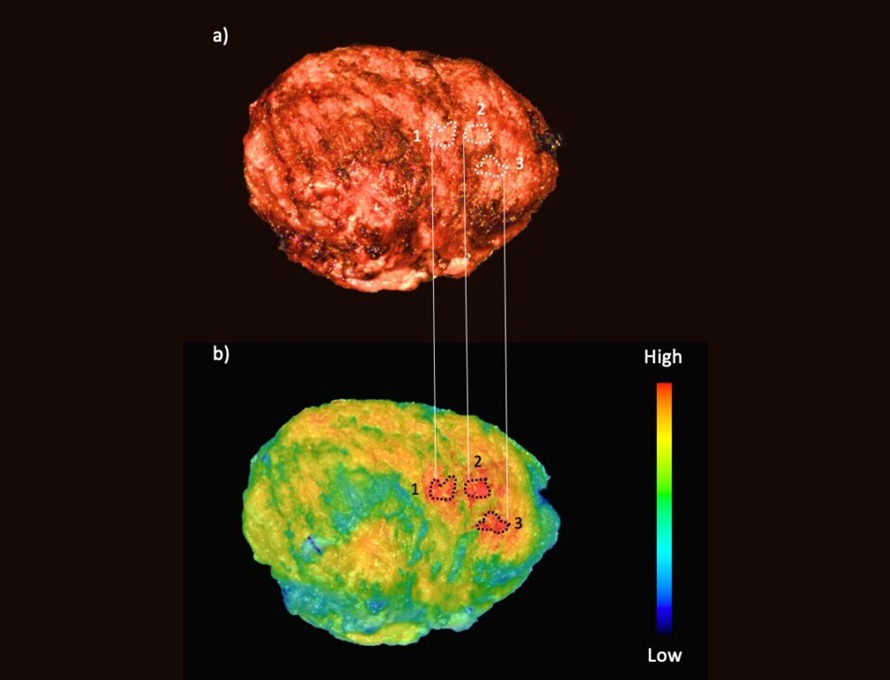
Fluorescent Imaging Agent ‘Lights Up’ Nerves for Better Visualization During Surgery
Surgical nerve injury is a significant concern in head and neck surgeries, where nerves are at risk of being inadvertently damaged during procedures. Such injuries can lead to complications that may impact... Read more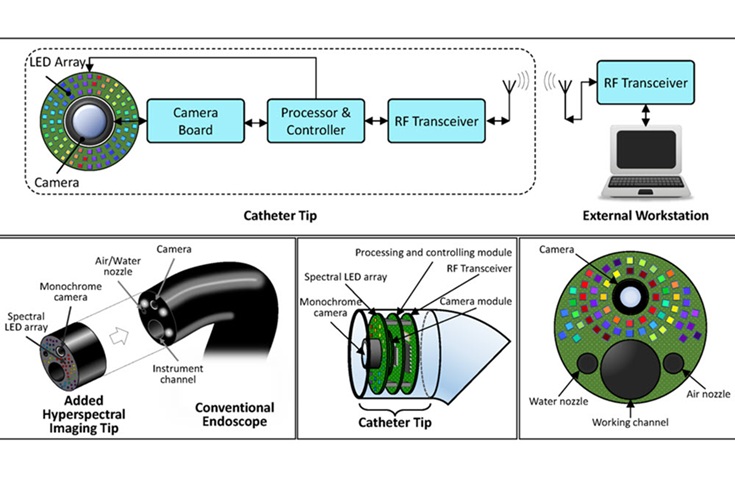
LED-Based Imaging System Could Transform Cancer Detection in Endoscopy
Gastrointestinal cancers remain one of the most common and challenging forms of cancer to diagnose accurately. Despite the widespread use of endoscopy for screening and diagnosis, the procedure still misses... Read morePatient Care
view channel
Revolutionary Automatic IV-Line Flushing Device to Enhance Infusion Care
More than 80% of in-hospital patients receive intravenous (IV) therapy. Every dose of IV medicine delivered in a small volume (<250 mL) infusion bag should be followed by subsequent flushing to ensure... Read more
VR Training Tool Combats Contamination of Portable Medical Equipment
Healthcare-associated infections (HAIs) impact one in every 31 patients, cause nearly 100,000 deaths each year, and cost USD 28.4 billion in direct medical expenses. Notably, up to 75% of these infections... Read more
Portable Biosensor Platform to Reduce Hospital-Acquired Infections
Approximately 4 million patients in the European Union acquire healthcare-associated infections (HAIs) or nosocomial infections each year, with around 37,000 deaths directly resulting from these infections,... Read moreFirst-Of-Its-Kind Portable Germicidal Light Technology Disinfects High-Touch Clinical Surfaces in Seconds
Reducing healthcare-acquired infections (HAIs) remains a pressing issue within global healthcare systems. In the United States alone, 1.7 million patients contract HAIs annually, leading to approximately... Read moreHealth IT
view channel
Printable Molecule-Selective Nanoparticles Enable Mass Production of Wearable Biosensors
The future of medicine is likely to focus on the personalization of healthcare—understanding exactly what an individual requires and delivering the appropriate combination of nutrients, metabolites, and... Read more
Smartwatches Could Detect Congestive Heart Failure
Diagnosing congestive heart failure (CHF) typically requires expensive and time-consuming imaging techniques like echocardiography, also known as cardiac ultrasound. Previously, detecting CHF by analyzing... Read moreBusiness
view channel
Bayer and Broad Institute Extend Research Collaboration to Develop New Cardiovascular Therapies
A research collaboration will focus on the joint discovery of novel therapeutic approaches based on findings in human genomics research related to cardiovascular diseases. Bayer (Berlin, Germany) and... Read more











